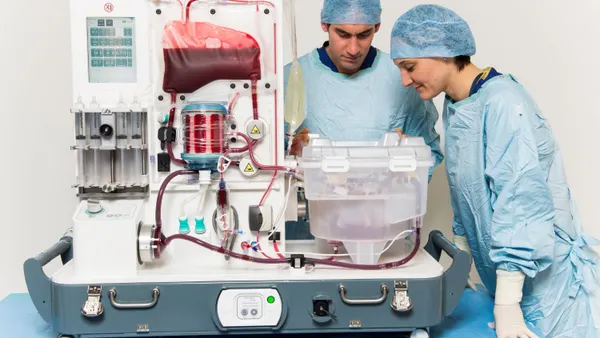Dive Brief:
- Edwards Lifesciences has recalled thousands of arterial cannulas because of exposed wires that could lead to serious injuries, the Food and Drug Administration said Thursday.
- The company received complaints about an exposed 3mm to 4mm section of wire. Edwards had not received any reports of serious injuries or deaths linked to the issue as of May 20, but the risk led the FDA to publish a Class I recall notice.
- Edwards has asked customers to return the affected devices. More than 27,000 units of one of the models were in commerce, the FDA said in a recall database entry.
Dive Insight:
Physicians use the devices to provide arterial perfusion of oxygenated blood for up to six hours to adults undergoing cardiopulmonary bypass procedures. Edwards wrote to customers in May after confirming a small number of occurrences of extruding wires from its Optisite Arterial Perfusion cannulas.
“The released wire at the tip of the cannula was identified prior to any procedures being performed,” Edwards said. “The complaints have not resulted in any injury. The risk for the wire-reinforcement coil protruding out of the cannula body is major tissue damage and hemolysis.”
The FDA expanded on the risks in its recall notice. Exposed wires could puncture the artery, the agency said, causing bleeding, inadequate perfusion and hemolysis. The severity of the risks led Edwards to tell customers to remove the affected devices from their inventories and arrange to return the products in exchange for credit.
While the extruding wires affected Optisite devices, Edwards included four models of peripheral femoral arterial cannulas in the recall because they are made from the same components. The number of recalled devices ranges from more than 27,000 for one of the Optisite models to fewer than 600 for one of the other cannulas.
The FDA published the notice on the day Edwards shared its financial results for the second quarter. Sales increased nearly 12%, leading the company to raise the bottom end of its full-year revenue growth guidance from 8% to 9%.











